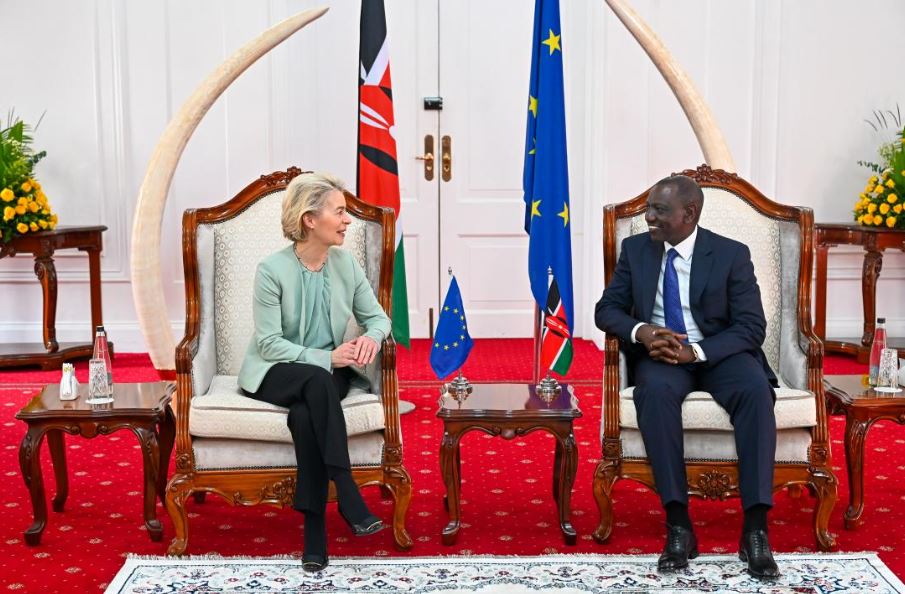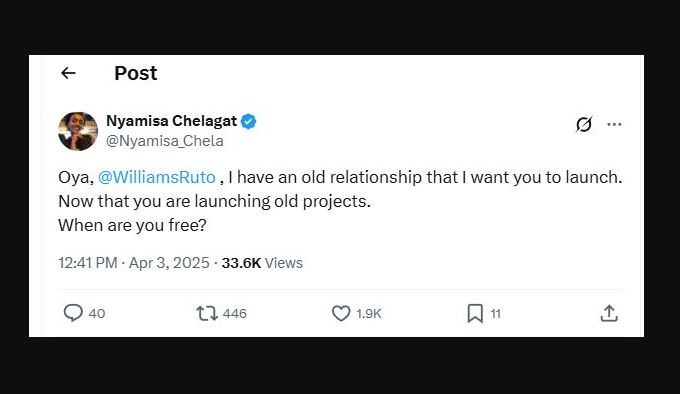 Kenya and the European Union have finally implemented a trade deal after a decade of negotiations, marking a significant milestone in bilateral economic relations. This agreement grants tax-free access for goods from the 27-country EU bloc into Kenya’s domestic market, ending a 25-year wait for duty-free entry.
Kenya and the European Union have finally implemented a trade deal after a decade of negotiations, marking a significant milestone in bilateral economic relations. This agreement grants tax-free access for goods from the 27-country EU bloc into Kenya’s domestic market, ending a 25-year wait for duty-free entry.
Rebecca Miano, Kenya’s Cabinet Secretary for Investment, Trade, and Industry, announced the enforcement of the EU-Kenya Economic Partnership Agreement (EPA) on Monday.
The EPA ensures that all of Kenya’s exports enjoy duty-free and quota-free access to the EU’s substantial USD 18 trillion market, with the exception of arms. The EU is a crucial trading partner for Kenya, serving as a major destination for its exports.
Describing the EPA as one of the most ambitious agreements between the EU and an African country, Ms. Miano highlighted its potential as a blueprint for other nations in Eastern Africa.
The agreement covers a wide array of areas including trade, economic cooperation, and development, with specific provisions for labor rights, gender equality, forestry, environmental protection, and climate action.
Under the terms of the EPA, Kenya will gradually phase out import duties on European goods over a span of 25 years. This move aims to facilitate duty-free entry for items such as machinery, minerals, and chemical products, thereby encouraging increased investments from the EU.
Despite these benefits, the agreement includes safeguards to protect Kenya’s agricultural sector. It restricts the EU from providing extensive subsidies to its agricultural exports to Kenya without engaging in detailed policy discussions with Nairobi. This measure is designed to shield Kenya’s agriculture and food security from unfair competition.
In 2023 alone, EU exports to Kenya amounted to Kes.223.12 billion, underscoring the robust nature of their bilateral trade relationship. Conversely, Kenya exported goods worth Kes.150.08 billion to the EU during the same period.
The EU-Kenya Economic Partnership Agreement was finalized in June 2023 and officially signed by both parties on December 18, 2023, cementing a new era of economic cooperation and mutual benefit.
The EPA enforcement follows the European Parliament’s approval on February 29, clearing the path for heads of State and government to finalize the ratification process.
A total of 366 EU lawmakers supported the deal, while 86 members opposed it, and 56 members abstained from voting.
Similarly, Kenyan lawmakers endorsed the document, ensuring its enforceability.








